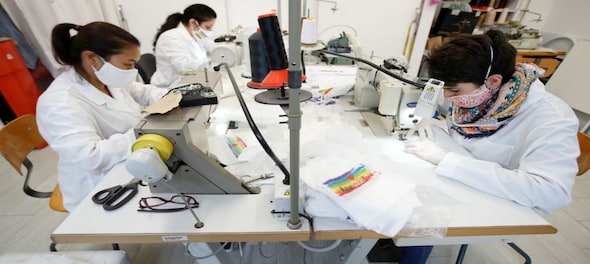
In October 2007, the American Society for Microbiology (ASM) had published an extensive report on the Severe Acute Respiratory Syndrome (SARS) coronavirus or SARS-CoV, stating that a virus could re-emerge from China, and cause a crisis similar to that of the 2003 SARS pandemic.
The society, the oldest and largest single life science membership organisation in the world, named Severe Acute Respiratory Syndrome Coronavirus as an agent of emerging and re-emerging infection -- parsed SARS-CoV -- as "a novel virus that caused the first major pandemic of the new millennium". Alarmingly, it intimated the presence of a large reservoir of SARS-CoV-like viruses in southern China, which is termed was a 'time bomb' that could go off anytime.
The warning that came 13 years ago has the world under lockdown today.
First mass outbreak
Humans first contracted the SARS-CoV in 2002 in Guangdong province of southern China. The outbreak was declared an epidemic after it spread to 26 countries, resulting in over 8,000 confirmed cases and causing 774 deaths.
The ASM report had pointed out, “Coronaviruses are well known to undergo genetic recombination (375), which may lead to new genotypes and outbreaks. The possibility of the re-emergence of SARS and other novel viruses from animals or laboratories and therefore the need for preparedness should not be ignored."
Take precaution
The paper not only warned of its re-emergence, but suggested that early recognition, triage and prompt isolation of suspected cases could prevent the spread of the virus. Among the precautions that needed to be taken by governments, the paper directed immediate contact tracing and quarantine of contacts, temperature checks at borders, health declarations for travellers, social distancing by the suspension of schools and shutting workplaces, and effective communication of information to control community spread of the disease.
At an individual level, scientists had mentioned a routine to inactivate the virus by regularly using disinfectants such as household bleach and handwashes that can “reduce the viral load by more than 3 logs within 5 mins”.
Caught off-guard
The research concluded with a question: Should we be ready for the re-emergence of SARS?
We sure know the answer, yet we were caught completely off-guard.
As of March 25, we have over 4.5 lakh confirmed cases of COVID-19 across the world with 18,916 reported deaths and eleven countries under complete lockdown, including India.
Wuhan, the city in eastern China -- where the outbreak occurred in mid-December 2019 -- has a population of over 11 million, but authorities in the country were swift to take action and quelled the outbreak before it could claim more lives. However, Iran, Italy and Spain unfortunately delayed their actions and the death toll in these countries has surpassed that of China.
The World Health Organisation declared the COVID-19 outbreak as a global pandemic on March 11, two weeks later warned that the US could become the next epicentre of the disease, after Iran and Italy.
Impact on economies
The S&P Global Ratings on March 20 said, “We believe the effects of the outbreak have pushed global economy into a recession.” The ratings agency added that the full-year GDP growth in China will drop to 2.7-3.2 percent. Fitch Ratings has cut India's GDP growth forecast to 5.1 percent for FY20-21.
In a desperate measure to flatten the curve of rising cases, India imposed a 21-day nationwide lockdown on March 25. Prime Minister Narendra Modi in a televised address said, "The lockdown of 21 days is long, but significant to save lives. If India fails to observe the lockdown, the country will be set back by 21 years.”
The ASM research has taught governments across the world a lesson in the form of the 2020 coronavirus pandemic. What needs to be seen is, how economies across the globe battle this pandemic, save lives and resurrect.
First Published: Mar 26, 2020 8:08 AM IST
Check out our in-depth Market Coverage, Business News & get real-time Stock Market Updates on CNBC-TV18. Also, Watch our channels CNBC-TV18, CNBC Awaaz and CNBC Bajar Live on-the-go!



